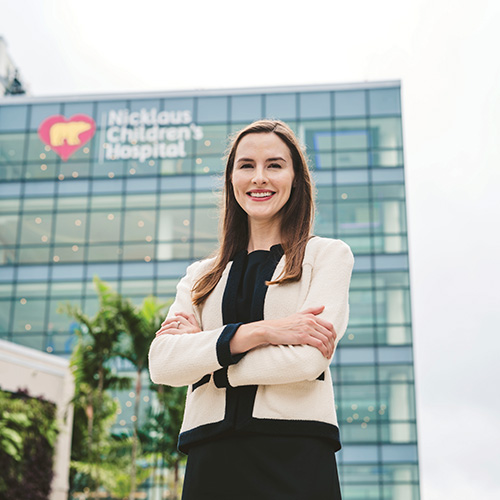Chelsea Sommer wants every child born with cleft palate to receive the care they deserve. The bilingual speech-language pathologist knows it can be challenging to obtain treatment for this complex congenital difference that is associated with speech development problems, even after surgery. Roughly 70% of children with cleft palate require speech therapy, however, there are some regions in the world with a shortage of speech therapists.
A professor and craniofacial speech therapist at Nicklaus Children’s Hospital in Miami, Sommer knows a child who cannot be understood might be less likely to speak and be spoken to. Addressing the gap in care, she has been part of the development of a structured virtual cleft speech mentorship program with Smile Train for speech practitioners of all skill levels. Additionally, Sommer has traveled to Peru for the past three years to volunteer with the FACES Foundation, providing speech assessment and treatment to children with cleft palate.
In other research, Sommer and colleagues at Johns Hopkins All Children’s Hospital are examining the validity of artificial intelligence in assessing hypernasality in patients with velopharyngeal dysfunction (VPD) – which occurs in about 20-30% of children with cleft palate after their palate repair. Sommer and her colleagues are investigating whether artificial intelligence could aid health care practitioners in making a diagnosis.
“The ability to communicate and to be understood is a basic human right. My life’s mission is to ensure comprehensive cleft palate care for every child who needs it.”

